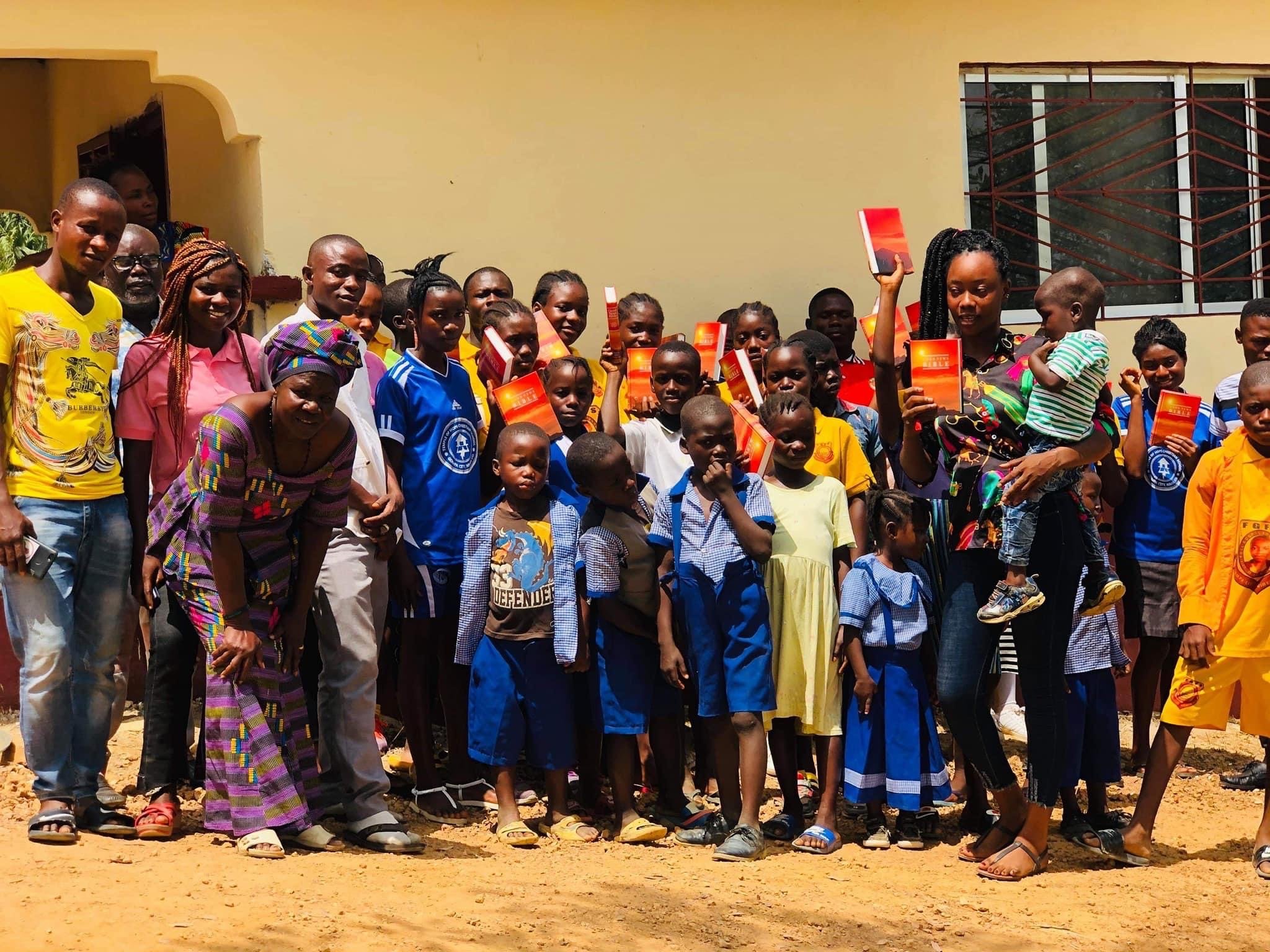A more educated, healthy, and economically stable Liberia and West Africa, empowered through ongoing community development, educational and career resources, and access to food and clean water.
1. Improving Education
Provide scholarships and other assistance to Ebola victims in Liberia and other parts of West Africa (Mary L. Talboy Memorial Grant).
Provide competitive college scholarships to Ebola survivors who maintain a B average or higher.
Provide competitive scholarships to survivors who attend a technical school.
Provide competitive scholarships to survivors who attend a primary or secondary school.
Provide books, desks, and other necessities for public and private schools serving populations affected by the Ebola epidemic.
Facilitate a sister school program.
Longer-Term Education Goals
Build and operate a school of excellence in Liberia that meets U.S. standards, specifically for those students who demonstrate a high academic level
Build additional schools of excellence that meet U.S. standards in Liberia and other areas of West Africa and the world
Partner with universities and international teacher exchange programs to recruit visiting teachers and to facilitate training and certifying Liberian teachers for staffing schools of excellence
Work with U.S. accreditation agencies to offer dual diplomas to children graduating from a school of excellence, thus ensuring a higher level of learning and opening the doors to graduates attending universities in other countries, including the United States
2. Improving Health
Provide grants for improving the health and psychosocial well-being of Liberians and West Africans (Glenn E. Talboy, MD, Memorial Grant).
Provide grants for maintaining community-level psychosocial healing sessions.
Provide scholarships to persons seeking an advanced degree in medicine, laboratory sciences, midwifery, nursing, or a related health profession.
Develop the Adopt-a-Doc Program in which a donor would “adopt” a person who has been accepted into an accredited Liberian medical school or other postsecondary health-related degree program (e.g., nursing, laboratory, or midwifery) but who cannot afford to pay tuition. The donor would agree to donate the tuition amount for 1–4 years.
Facilitate medical relief missions to Liberia and West Africa.
Assist with medical payments to persons needing medical attention but who do not seek it because they are unable to pay for it.
Provide sustenance to families in need.
Conduct public health educational trainings for public and private clinic staff in conjunction with the Liberian Ministry of Health and Social Welfare (MOHSW).
Assist the Liberian MOHSW as needed during vaccination and other health related campaigns.
Provide grants for building foundation clinics in areas having the greatest need.
Build and repair water wells to provide clean water and sanitation to communities in Africa.
3. Empowerment of Women
Provide grants to women who have lost a spouse and to other qualified women for the start-up of a small business (Harold L. Shaw Memorial Business Empowerment Grant) and provide educational grants to women and children of single mothers (Mary L. Talboy Memorial Grant).
Provide a one-time monetary grant to women for starting a small, sustainable business.
Provide educational scholarships to women.
Provide educational scholarships to children of single mothers.
4. Assisting Orphans and Children with Disabilities
Provide grants to orphans and children with disabilities, orphanages (particularly those affected by the Ebola epidemic) and organizations designed to work with orphanages, orphans, and children with disabilities (John H. “Casey” Koenig Memorial Grant).
Provide scholarships toward a high school diploma or college degree to children and youth who have lost a parent, particularly those residing in an orphanage, who have demonstrated a high ability for learning.
Provide grants to organizations working to ensure a child turning 18 years old is not forced to leave an orphanage or group home but rather is educated or has a vocation before having to leave.
Provide grants to orphanages and existing organizations for the benefit of orphans and children with disabilities for building adaptive and vocational skills necessary for independent living.
*Survivors are defined as being an Ebola survivor, having lost a spouse or parent/caregiver to Ebola (other diseases and reasons), communities affected by Ebola, and those children under the age of 18 identified as orphans or living in orphanages.






